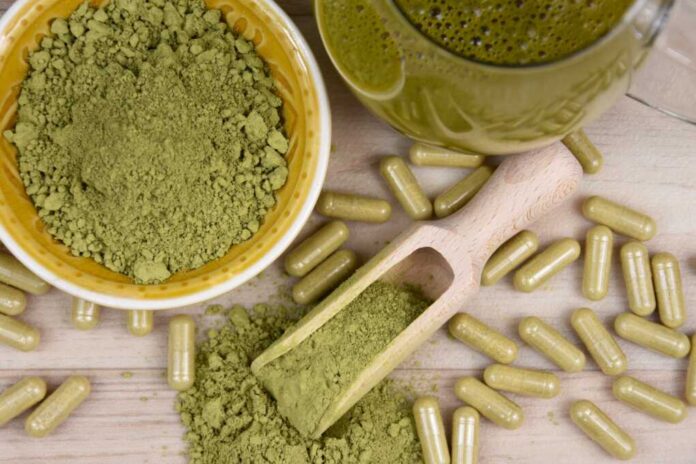
Kratom’s reputation as a harmless herbal remedy is unraveling as new evidence uncovers a story of addiction, risk, and a regulatory no man’s land that threatens to catch the unwary off guard.
Story Snapshot
- Kratom’s marketing as a natural wellness supplement belies mounting evidence of its addictive potential and health risks.
- Regulatory bodies and scientists clash over its classification, safety, and medical value, fueling a fierce policy debate.
- Traditional use in Southeast Asia contrasts sharply with unregulated Western markets and inconsistent quality controls.
- Consumer experiences and advocacy muddy the waters, leaving the public with more questions than answers.
Kratom’s Journey: From Village Remedy to American Wellness Aisle
Kratom, known to botanists as Mitragyna speciosa, started its journey centuries ago in the steamy jungles of Southeast Asia. Thai and Indonesian laborers chewed its leaves for stamina or brewed them into tea to ward off pain and fatigue. By the 1830s, Western explorers had documented the plant, noting its dual role as stimulant and medicine for opium withdrawal. Fast-forward to the 21st century, and kratom has leapfrogged continents, now sold in American gas stations and supplement shops—marketed as an all-natural answer to pain, stress, and opioid withdrawal.
As kratom’s popularity soared in the early 2000s, its profile shifted from marginalized curiosity to mainstream supplement. Driven by waves of opioid addiction and a hunger for alternatives, millions turned to kratom, convinced that “natural” equaled “safe.” But reports of toxicity, addiction, and deaths soon surfaced, sending public health officials and poison control centers into high alert. The U.S. FDA and CDC issued warnings between 2016 and 2019, and calls to poison hotlines spiked, exposing the underbelly of the kratom boom.
Watch: Public health officials warning people not to consume Kratom – YouTube
Regulatory Confusion and the Battle for Kratom’s Future
The legal landscape surrounding kratom is a patchwork of contradictions. Thailand, once a staunch opponent, legalized kratom for medicinal use in 2018, reversing a decades-old ban. Meanwhile, in the United States, the plant remains largely unregulated at the federal level—though banned or restricted in several states and municipalities. The FDA and DEA have repeatedly called for kratom’s active compounds to be classified as Schedule 1 substances, arguing that their opioid-like effects and potential for abuse outweigh any claimed benefits. Advocacy groups and some scientists counter that such a move would drive the market underground, erode consumer safety, and stifle research into kratom’s therapeutic potential.
Science, Advocacy, and a Public Health Dilemma
Scientists are caught in the crossfire between anecdotal success stories and mounting evidence of harm. Peer-reviewed studies confirm that kratom’s effects vary dramatically by dose: small amounts can act as stimulants, while higher doses mimic sedatives or opioids. Evidence of dependency, withdrawal symptoms, and toxicity is growing, but large-scale clinical trials remain scarce. Medical researchers and public health officials urge caution, warning that kratom’s risks may outweigh its unproven benefits.
The Stakes: Health, Economics, and the Future of Self-Medication
Kratom’s story is a case study in the clash between tradition and modernity, science and anecdote, regulation and free markets. Short-term, the U.S. faces rising reports of toxicity and dependence among users seeking relief from pain or opioid withdrawal. Long-term, the outcome of ongoing regulatory and scientific battles will determine whether kratom becomes a tightly controlled substance, a regulated supplement, or remains a gray-market gamble. The supplement industry, public health systems, and millions of consumers await a resolution that balances safety, access, and evidence-based medicine.
Sources:
The Origins of Kratom Usage
Unraveling Kratom: Historical Roots, Regulations, Medical Potential
University of Florida: Kratom Research
Nature: Kratom Pharmacology Study


















